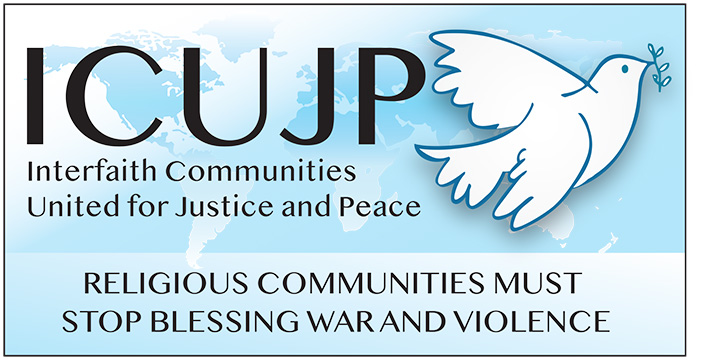
A week ago my wife Jill and I went to see "The Jesus Revolution," a recently released film about the Jesus movement which had a profound influence on many Christians, including my wife. She was in high school when this movement started to sweep through California and the nation and eventually the world. It attracted tens of thousands of young people, many of them hippies. Most gave up drugs but not their flamboyant lifestyle--their long hair and colorful clothes and unconventional ways. Jill wasn't a hippie. She was a lonely high school kid living in Orange County and looking for community and meaning in her life. She found Christ and the Bible, and her life was transformed. Then she starting attending Calvary Chapel in Costa Mesa, where the Jesus movement was birthed, and heard the preaching of Chuck Smith. She loved the contemporary music and excitement and joy of being with like-spirited young people. When she went to college at Cal Poly San Luis Obispo, she was baptized in the ocean at Avila Beach along with hundreds of others. She became a campus minister and devoted her life to sharing the good news of the Gospel. As I watched this movie with her, I saw tears in her eyes as she recalled golden moments when she came to Christ and experienced the power of the Holy Spirit.My life was "revolutionized" by Christ at about the same time (1971), but in a very different way which I will talk about later. Let me first describe how I responded to this movie. I didn't know much about how the Jesus movement got started so I was fascinated to learn about significant figures like Chuck Smith, Lonnie Frisbee and Greg Laurie.
The movie begins with Greg Laurie, a nineteen-year-old sitting on the beach watching hundreds of young people being baptized in the ocean by a hippie named Lonnie Frisbee, who has long hair and a beard that makes him look like Jesus. (He is played by Jonathan Roumie, who plays Jesus in a series Jill and I love called "The Chosen.") A reporter asks Greg how he came to this place, and he recalls his journey to faith.
Greg (who later became a highly successful Evangelist) started off life with a troubled family situation. He was raised by a single mother who had seven marriages, often moving to vastly different locations such as New Jersey and Hawaii. Greg was attending a military academy in hopes to have some discipline in his life when he encounters some "hippie" students who draw him into their liberated world. He revels in the freedom and the joy of the hippie drug culture, but it isn't satisfying his deepest need for meaning and purpose. Cathe, a girl that he falls in love with (and eventually marries), is drawn into the Jesus movement and she invites Greg to check it out.
Cathe is friends with the daughter of Chuck Smith, a pastor whose church is dying. He is very critical of the young generation and sees him as lost. Her daughter brings home a charismatic barefoot hippie named Lonnie Frisbee who has become a Christian and Smith is intrigued. He invites him to his church to preach and soon hippies are flocking to hear him. Smith embraces this movement and Calvary Chapel becomes the epicenter of the Jesus movement.
The movie describes the rise of this movement as well as the tensions that developed between Lonnie Frisbee and Chuck Smith. It also depicts the relationship between Greg Laurie (who comes from poverty) and Cathe (who comes from wealth). This human drama is what makes the movie compelling.
The movie received mixed but mostly positive reviews. The audience loved it (99%), but they are probably a self-selecting group of Christians. The critics were 62% favorable, not bad for a niche religious movie. Dennis Harvey of Variety summed up the positive reviews by describing the movie as "one of the most appealing faith-based big-screen entertainments in a while, polished and persuasive without getting too preachy."
My Journey to Jesus
I was never part of the Jesus movement, but I did experience the Jesus revolution on a personal level in 1971. After graduating from Boston University, where I studied poetry with Anne Sexton for two years, I felt led to go "on the road" and took the trans-Canadian railroad across Canada, stopping in various locations along with way. When I stopped in the prairie city of Saskatoon, Saschachuwen, I wandered into a church and walked over to the pulpit, where a Bible was open. I started reading the words of Jesus and felt my heart open up and began to cry. I realized that these words could revolutionize the world, and me. For the first time in my life, I felt the presence of a power greater than myself--a power I have come to know as God or the Holy Spirit.
I felt led by the Spirit to became a hippie poet, writing for underground newspapers, and living mostly in Vancouver, British Columbia. I hitchhiked across the country and experience the joy and freedom of being "on the road," guided by the Spirit. I did have one encounter with the Jesus people in Oregon. Here's how this "came to pass."
I was hitching to Eugene, Oregon, to write for a magazine called "The Bullfrog." I was dressed in a Canadian mounted police coat that made me look like Sgt. Pepper, with long hair and bellbottoms--the full hippie regalia. I needed a place to "crash" so I went to the campus and knocked on a dorm to ask for help. A nervous student responded: "Don't you know that a coed was murdered here a couple of weeks ago. People are very uptight." He recommended that I go to the Newman Center, a pleasant home on the outskirts of the campus.
However, it was midnight and the Newman Center was closed. There was a chair on the front porch so I sat down, propped up my legs, and prepared to sleep. Before I did, I prayed a simple but heart-felt prayer. "God, please take care of me."
A little while later, after I had drifted off into sleep, I was awakened by a light shining into my eyes. I looked up and saw two police officers pointing a flashlight into my face. As soon as I saw them, I said words that I am convinced were inspired by the Holy Spirit. They were simple, heart-felt and effective.
"Am I glad to see you!" I said, smiling.
The police relaxed when they heard my unexpectedly cheerful response and asked me to come with them to their car. They asked for my ID (I had none) and asked about me. I told them I was a poet and wrote article for underground newspapers. What kind of articles? Oh, lots of things, politics, religion....
They soon decided that I was "harmless" and asked if I'd like to be taken to the house of the local Jesus people. "Sure," I responded.
They dropped me off and I was welcomed into a large house crowded with hippies like me, and I was given a bunk bed to sleep on.
The next morning at breakfast, an earnest young man asked me if I knew the Lord.
"Definitely," I replied, smiling. "He saved my butt last night."
Over the next year or two I became a seeker and explored various religious paths--Hinduism, Bahai, Buddhism--but I eventually opted for Christianity and began attending various churches. During my graduate school days, I joined the Presbyterian Church in Princeton and adopted a more academic approach to religion. I am deeply grateful for what I learned about important Christian theologians like Dietrich Bonhoeffer and Paul Tillich. But the more I immersed myself in academia, the more I drifted away from the spirit of joy and freedom I had experienced while "on the road."
Thanks to Quakers, with their contemplative and open worship, I was able to reconnect with the Holy Spirit and Inward Christ. I was also able to put my faith into action in life-affirming ways and was led by Spirit to go on peacemaking missions to the Soviet Union, Kazakhstan, Israel/Palestine, and Australia and attend world-wide Quaker conferences in Kenya, Peru and Mexico. I am grateful to have been part of a world-wide movement to promote peace and justice led by the Spirit. I also found among Quakers (and also among Methodists) the joy and freedom I experienced while "on the road." Most importantly, I found a beloved community that has sustained me and my efforts to be a faithful follower of Jesus.
The Need for a New "Jesus Revolution"
What the "Jesus Revolution" captured best was the yearning for a new way of life, and a new kind of society, that inspired the hippie movement of the 1960s. Young people rejected the materialism and individualism of American culture and were seeking a life of freedom and joy. Rock music and psychedelic drugs seemed to offer what we were seeking, but this lifestyle proved a dead end (both literally and figuratively) for most of us. What the revolutionary Jesus offered was something more real and enduring. As it says in the Gospels, he "came to bring life, and to bring it more abundantly" (John 10:10).
Flash forward to 2023, and many young people are turning away from Christianity because of right-wing Christians and Christian nationalists who have embraced Donald Trump, who is the antithesis of everything that Jesus stood for. To Jill and me, it is clear that we need another Jesus revolution--one that will help a rising generation experience the joy and excitement of creating a new world of compassion and justice for all--what Jesus called "the kingdom of heaven." Dr. King called this "the beloved community" and it is the heart and soul of the true Jesus revolution. Young people are abandoning churches in droves, but they are still hungering and thirsting for meaning and community. Many see themselves as spiritual but not religious. Perhaps they are ripe for a new "Jesus revolution."
Loving God, we so need the joy and power of your Holy Spirit to transform our broken nation world and to guide our young people to the path of abundant life and loving service. Help us to be instruments of Your transforming power so that your beloved community can be here on earth as it is in heaven!








